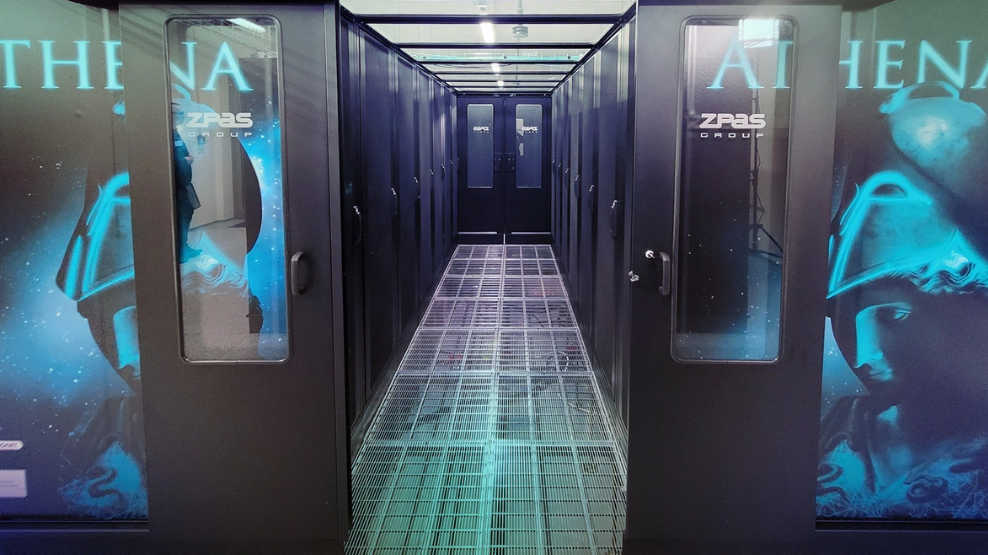Poland’s fastest supercomputer, Athena, has been launched at the Academic Computer Centre Cyfronet at the AGH University of Science and Technology (AGH) in Kraków. The Ministry of Education and Science provided nearly PLN 12 million for the project.
Athena achieves a theoretical computing power of more than 7.7 PetaFlops (7709 TeraFlops), which earned the machine 105th place on the June TOP500 list and makes it currently the fastest supercomputer in Poland. Installed at Cyfronet in 2021, the system is expected to provide Poland’s scientific community and economy with state-of-the-art computing resources based on the latest generation of GPGPU processors and accelerators, together with the necessary data storage subsystem based on very fast flash memories.
Athena’s configuration includes: 48 servers with AMD EPYC processors and 1TB of RAM (a total of 6144 CPU computing cores) and 384 NVIDIA A100 GPGPU cards.
During the launch of the supercomputer at AGH University of Science and Technology in Kraków, Minister of Education and Science Przemysław Czarnek expressed his conviction that the supercomputer will make a significant contribution to the development of Polish science.
The Academic Computer Centre CYFRONET AGH makes three supercomputers available to Polish scientists: Athena (7.7 PetaFlops), Ares (3.5 PetaFlops) and Prometheus (2.7 PetaFlops). They all featured in the prestigious TOP500 list of the world’s fastest computers. Thus, for the first time in history, as many as three supercomputers from a single Polish computer centre have been included on the TOP500 list at the same time. In addition, all of them are present on the Green500 list of the most eco-friendly computers.
The supercomputers at Cyfronet are used by Polish scientists in virtually all fields of science and innovative economy. In 2021, they performed 5,549,582 computing tasks for scientific research with a total duration of 43,409 years.
Adrian Andrzejewski





